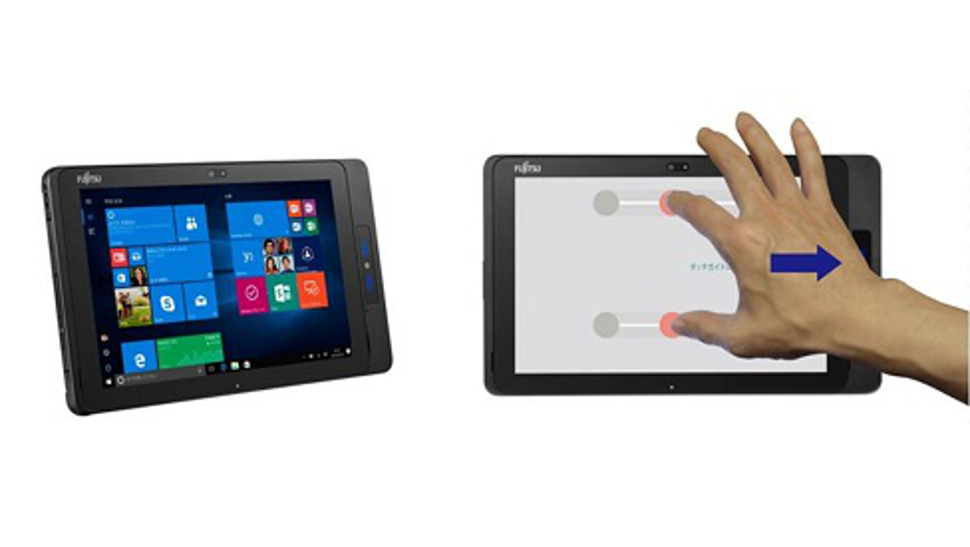Here’s a tablet you can unlock with your palm
New palm scanner allows you to literally slide into your home screen

Fujitsu has unleashed another clutch of products aimed primarily at business users, including a new Windows tablet, along with refreshed LifeBook and Esprimo offerings (notebook and desktop PCs respectively) which boast Kaby Lake processors – plus the world’s lightest mobile thin client (essentially, a cut-down laptop which taps into a remote server to get its computing power).
The headline model is the Arrows Tab Q507/P-SP which is a 10.1-inch Windows tablet, and it’s the first slate in the world which uses Fujitsu’s slide-style palm vein authentication.
To unlock the tablet, all you have to do is slide your hand along the touchscreen (as shown in the image above) and the palm vein sensor will swiftly do its stuff. Fujitsu is pretty proud of having incorporated this technology into what is a thin and compact tablet, which is also water and dust-resistant (with its exact IP rating to be confirmed).
As mentioned, the LifeBook series of laptops and Esprimo desktops have seen some action with the addition of one and two new models respectively. The new LifeBook S937/P is a 13.3-inch ‘ultra-mobile’ notebook which uses a Kaby Lake CPU, and the fresh Esprimo offerings are the D587/R standard desktop model and ultra-small form factor Q556/R, both of which also use Kaby Lake.
Beefy workstation
Fujitsu has also unveiled a new mobile workstation, the Celsius H970, which offers a 17.3-inch Full HD display and the choice of a Kaby Lake processor or Intel Xeon E3-1500 v6, backed with an Nvidia Quadro P4000 graphics card.
And finally, the company also revealed a new 13.3-inch mobile thin client, with the Futro MU937 claiming to be the lightest such device in the world at a weight of just 799g, and thickness of 15mm.
Despite its svelte lines, the MU937 has passed what Fujitsu describes as ‘strict’ durability and drop testing, plus it comes with a fingerprint sensor that can optionally be upgraded to Fujitsu’s palm vein sensor.
Are you a pro? Subscribe to our newsletter
Sign up to the TechRadar Pro newsletter to get all the top news, opinion, features and guidance your business needs to succeed!
Darren is a freelancer writing news and features for TechRadar (and occasionally T3) across a broad range of computing topics including CPUs, GPUs, various other hardware, VPNs, antivirus and more. He has written about tech for the best part of three decades, and writes books in his spare time (his debut novel - 'I Know What You Did Last Supper' - was published by Hachette UK in 2013).